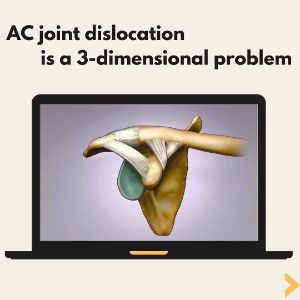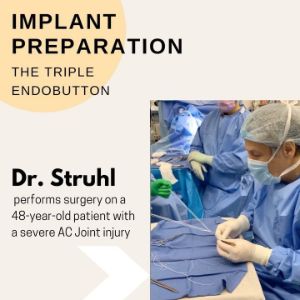What you know for sure is that you have shoulder pain. Direct trauma to the shoulder involving the acromion process can create unforgettable pain. This type of injury can be the result of an accident, a fall or a sports-related injury. Both shoulder separation and dislocation are common in all three cases, but they are not the same injury.
Location Is Key
Where the injury is located determines whether you have a dislocated shoulder or a separated AC. If the injury involves the ligament between the collarbone and the shoulder blade, you have a shoulder separation. You will experience shoulder pain and you may have a rather large bump over the site of the injury. Most likely, there will also be swelling and bruising.
A dislocated shoulder is an injury in which the top of the arm bone comes out of the socket of the shoulder blade. You will also have pain with this injury, and your arm will be positioned away from the body. The forearm is turned outward in a dislocation. The rounded contour of the deltoid muscle on the cap of the shoulder will be missing.
Treatment
A shoulder separation will in most instances be treated with conservative measures unless it is severe. For mild injuries, over-the-counter pain relievers and icing the injury will usually prove sufficient. When the separation involves complete tearing of the major ligaments supporting the joint, surgery may be required. In some instances, an athlete may choose non-invasive remedies with the knowledge that surgery will be needed in the future. When a ligament is completely torn, it will not heal on its own.
Dislocation of the shoulder requires that the displaced bone be put back into its socket. The shoulder will be less stable due to damage to the ligaments, and further treatment may be needed. If dislocation is a recurring condition, surgery may be required to stabilize the joint.
A destabilized shoulder can be a huge problem, so getting proper diagnosis and effective treatment is vital. Dr. Steve Struhl specializes in repairing shoulder injuries, including AC joint separations. When you have shoulder pain, contact Dr. Struhl and schedule an appointment for an exam and consultation.
Posted on behalf of Steven Struhl MD





